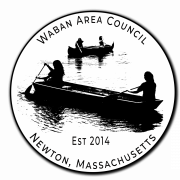
Newton is currently revising the city's Zoning codes in a 3 phase process. The final Draft of Phase one is available at this link. The next phase of creating new codes is currently being proposed which among other things, will entirely remove single family housing zoning.
Befor Mayor Fuller took office, the Planning Department maintained Newton was at 1.66% and the ZBA has invoked the 1.5% Land Area Minimum Safe Harbor to deny further 40B developments. - see the attached documents. The state issued new guidelines which Newton chose to follow which lowerd our percentage and re-enabled 40B as a developer tool to override local zoning laws.
The ABCs of Zoning Relief for Housing Developments in Newton: A Residents’ Guide to How Developers get Permits and how the Community can have its Say
View Forum Presentation and Glossary available in document archive of this page
Please review information on Special Permits as well.
Below is a 2016 video by attorneys Jonathan Witten and Dennis Murphy discussing their experience with 40B cases.
Below is a 2010 film made on the subject which contains interviews with Govenor Dukakis and other key figures on the history and results of 40B
Not In My Back Yard from joseph conforti on Vimeo.
Wikipedia: "Smart Growth is an urban planning and transportation theory that concentrates growth in compact walkable urban centers to avoid sprawl. It also advocates compact, transit-oriented, walkable, bicycle-friendly land use, including neighborhood schools, complete streets, and mixed-use development with a range of housing choices." Many questions arise: Is the application of Smart Growth stratagies for suburbs like Newton appropriate? Can portions be used while ignoring others? Here is a link to a website dedicated to the concept.
The city has a presentation on 40B, it is in the document archive of this page.
Special Permits must also be reviewed to understand how the city handles new builds in conjunction with 40B. Here is a link to the city's page
Commonwealth of Massachusetts: Chapter 40B Planning
Chapter 40B Fact Sheet CHAPA
Newton Zoning Board of Appeals Webpage
Newton Zoning Board of Appeals Comprehensive Permit Application Guidelines
Rules of the Newton Zoning Board of Appeals
75-83 Court Street provides a good case study
135 Wells Avenue also provides a good case study, included are the resource below:
Land Use Rules - Effective June 7, 2004
Statement of Good Practices-Land Use Petitions
Step-By-Step for Special Permits
More Links to useful information:
Form Zoning may offer a good solution for future development. Here is a website to examine
Newton Village Alliance is a citywide Newton organization which is actively working on zoning reform and community preservation. Click on the link to sign up for their updates.
Wellesley Large House Review is currently being looked at as a zoning reform model in Newton.Click here.
Teardowns: The Good, the Bad, and the Ugly Article from Boston Globe
Read the Executive Summary from this document from the National Low Income Housing Coalition which has some enlightening conclusions about affordable housing. "The conclusion drawn from the literature review is that over time the pendulum in the debate and policy has swung back and forth between poverty dispersal and place-based strategies that seek to help poor people in their current neighborhoods. After two decades of a clear bias in both academia and policy toward poverty dispersal, the pendulum has moved today to attempt to balance the approaches. The experience of recent policies to encourage or force poor people to move to better-off communities and the mixed results emerging from a number of policy experiments and studies of such moves and policies have contributed to this shift."
CHAPA - City Housing and Planning Association 2011
Citizen Experts Julia Malake and Kathleen Greiser 2016
Statewide affordable housing interactive map by percentage of municipality’s total housing units